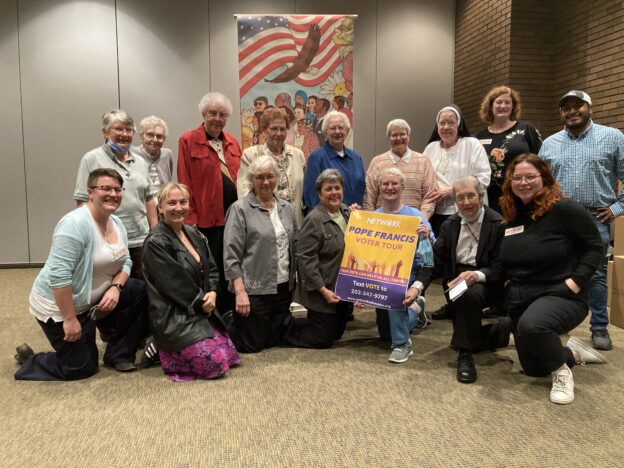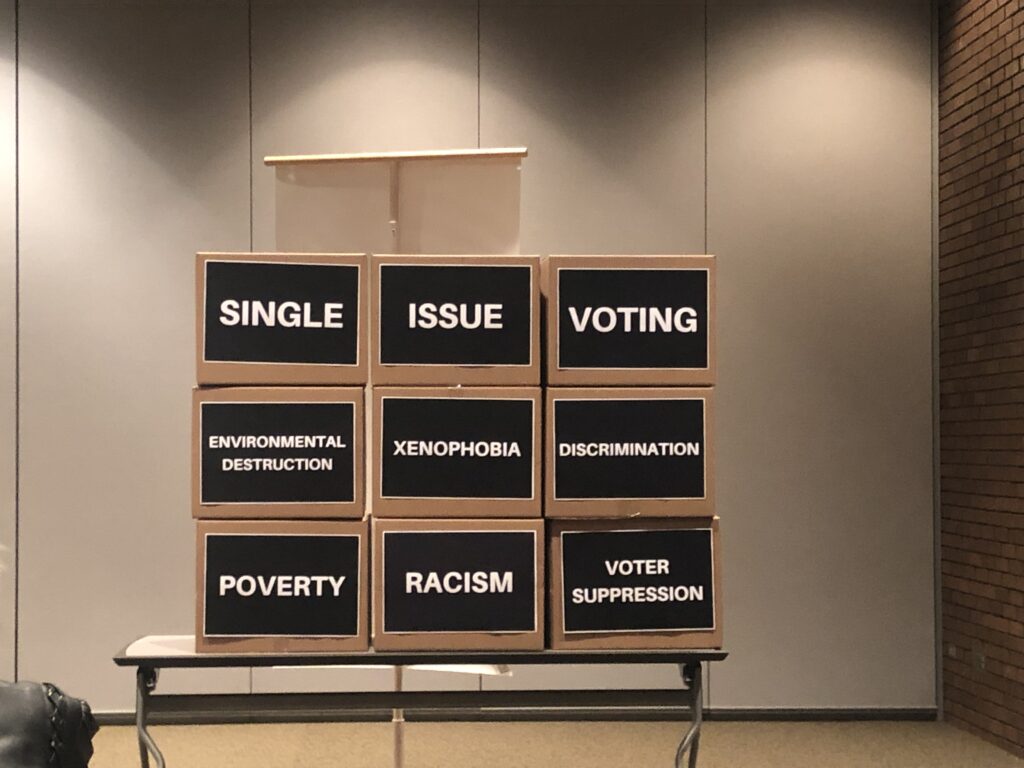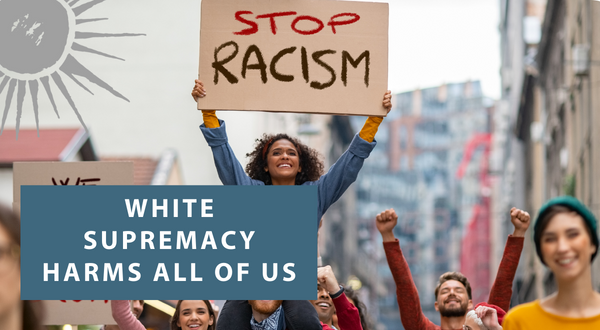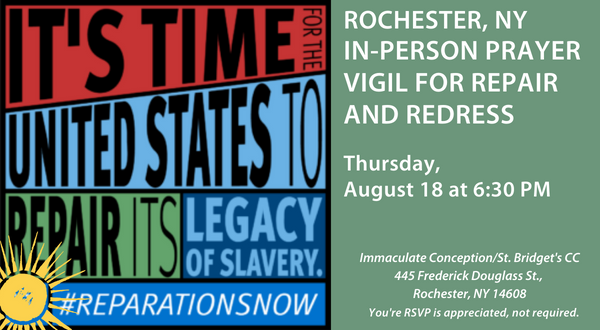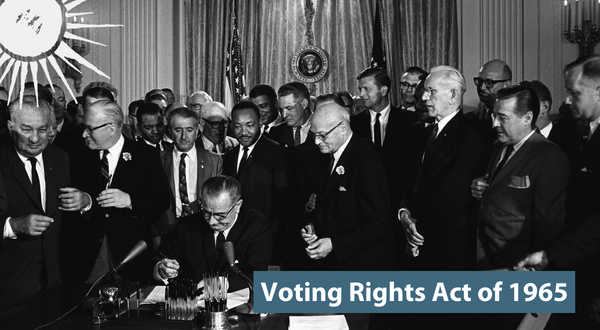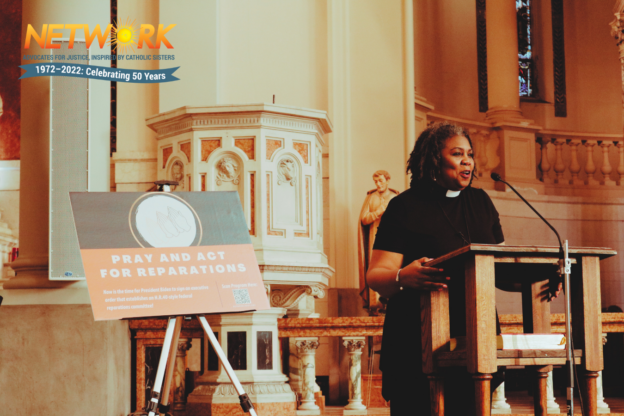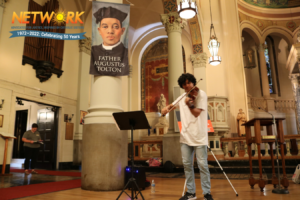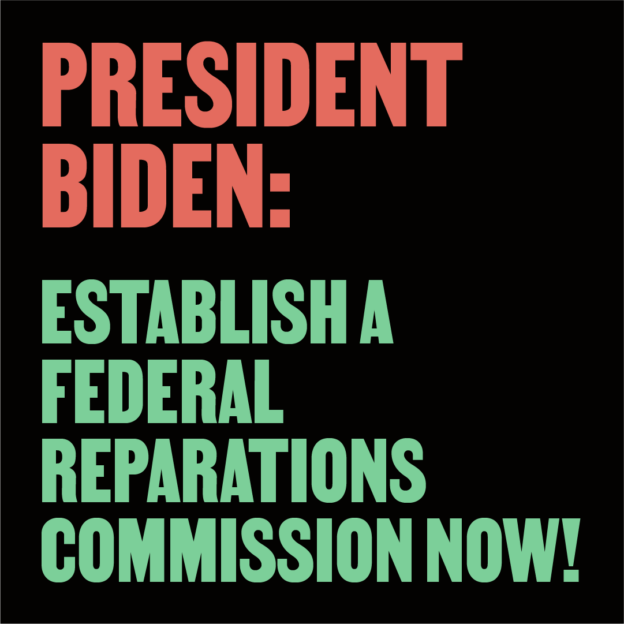
NETWORK Hits the Road for Our Pope Francis Voter Tour
Meg Olson
October 11, 2022
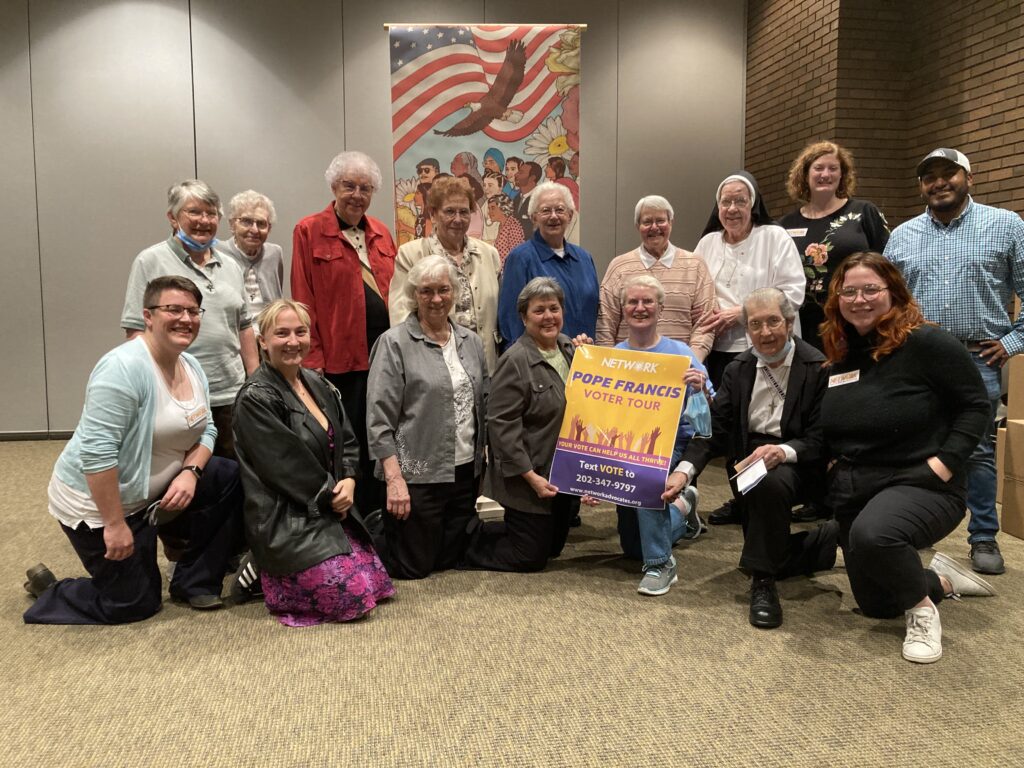
Springfield Dominicans, NETWORK team, and hosts from Faith Coalition for the Common Good gather at the kickoff event of the Pope Francis Voter Tour in Springfield, Ill. on Oct. 8.
For nearly the whole month of October, the NETWORK team is on the road for our Pope Francis Voter Tour. We kicked off in Springfield, Illinois on Oct. 8, are in East Lansing and Detroit this week, then heading to Ohio, then trekking across PA, where we finish on Oct. 29 in Erie.
On this tour, we are calling on Catholics and all people of good will to protect our democracy by building an inclusive and equitable society in which all people can flourish. We believe that your vote is your voice, and with your voice can add advance a wide, intersecting range of issues that support the common good.
Our tour includes visits to social service agencies and community organizations to listen and learn from impacted people about the challenges they are facing in their daily lives, workshops at colleges, and Town Halls for Spirit-Filled Voters.
So, you may be wondering, “what’s a Pope Francis Voter?” A Pope Francis Voter is a multi-issue voter who is willing do the work to build a multi-racial, inclusive democracy. Because of our belief of Imago Dei, of the inherent dignity of every person, we know it is immoral to allow a single issue to outweigh candidates’ positions that harm immigrants and asylum seekers, low-income families, people of color, the LGBTQ+ community, other marginalized communities, and the environment. Our faith calls us to position ourselves with those who are marginalized and those who have the least power in our society.
Pope Francis calls particular attention to this in Gaudete et Exultate (Rejoice and Be Glad). In this apostolic exhortation, he names all of the issues, such as the lives of the poor and the injustices that migrants face, that are “equally sacred to the lives of the unborn” (101-102).
Pope Francis actually has quite a lot to say about all of the issues we need to consider as we prepare for the election: racism, poverty, climate change, and even democracy itself. We here at NETWORK didn’t want you to have to pour over all of his writings and speeches, so we collected some key passages for you and put them on our Equally Sacred Checklist, our tool for the 2022 Midterms that equips you to evaluate any candidate running for office through a faithful, multi-issue lens. In fact, using the Equally Sacred Checklist is the first step in becoming a Pope Francis Voter!
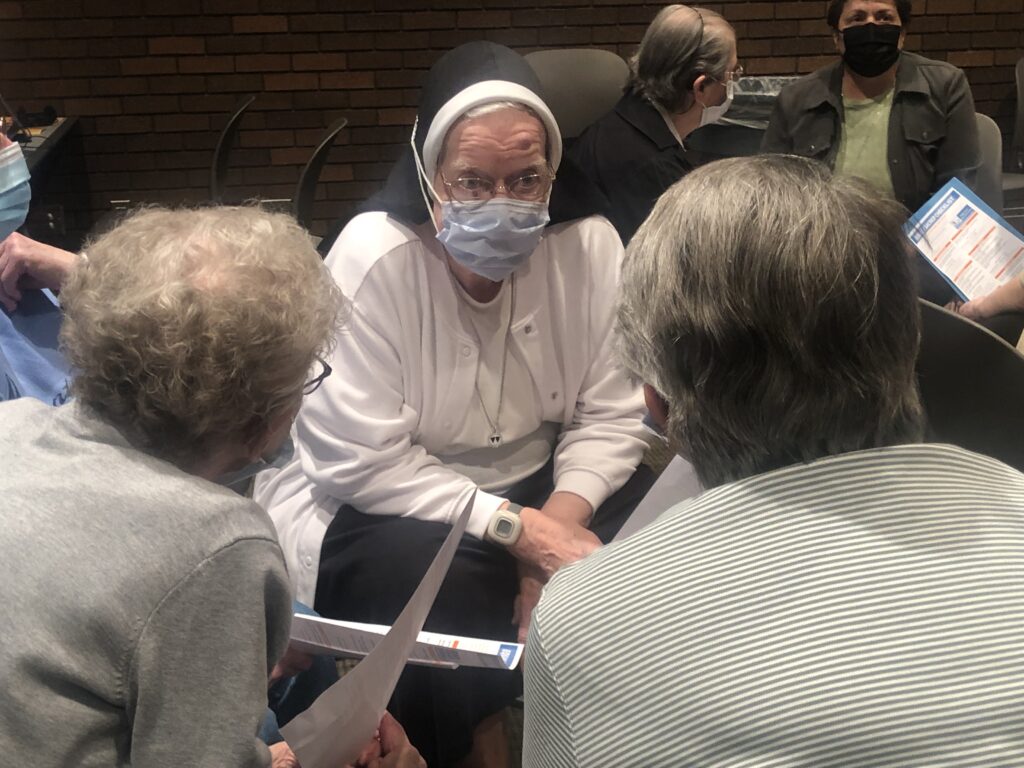
Springfield Dominican Sisters participate in small group discussions at the kickoff of the Pope Francis Voter Tour in Springfield, Ill. on Oct. 8.
At our Town Halls for Spirit-Filled Voters, we take a very close look at what is preventing our nation from having the multi-racial, inclusive democracy that we envision. What is actually keeping us from having a society where, no matter where we live, how much money is in our wallet, or the color of our skin, all people thrive?
As we were creating the town hall, we had an “ah-ha” moment: the very issues listed on our Equally Sacred Checklist are also the blocks that are preventing us from moving towards the world we want to see. Lately, it feels like these blocks have piled up into a wall. In our Town Hall for Spirit-Filled Voters, we name it the Wall of Division, Extremism, and Obstructionism. This wall is very real, and it didn’t just spring up during the 2016 Election. For well over 50 years, corporations, the ultra-wealthy, and their lobbyists, and some politicians have very strategically and systematically built this wall through an unrelenting assault on our collective rights and the common good. Why? Because they are seeking their own unrestricted power and wealth. And they have no problem sacrificing our democracy to get what they seek.
So what can we do to dismantle the wall? Do the work of Pope Francis Voters! One significant task is to tell people, either in conversations or in letters to the editor, about the importance of multi-issue voting. At each of our Town Halls, we have local Catholic sisters model their “elevator pitches” for why they are multi-issue, Pope Francis Voters. At our Town Hall in Springfield, Springfield Dominican Sisters Rebecca Ann Gemma, Marcelline Koch, and Marilyn Runkel had this important role. After they shared, illustrating their points with personal stories, it was the audience’s turn to get into small groups and practice saying why they are multi-issue voters.
As the NETWORK team listened in to the small groups’ conversations, we heard people say that when they were children, they were taught not to talk about politics. We here at NETWORK love to remind everyone that Pope Francis says, “A good Catholic meddles in politics.” It is exactly because of our belief in Imago Dei that we must participate in political life. We do this by voting, helping others register to vote, and sharing why we’re multi-issue voters. And when we take these actions and more, we can have fair and trustworthy elections, we can dismantle racist policies, and we can make sure everyone is treated with dignity and respect.
At the end of the Town Halls, we ask everyone to take the Pope Francis Voter Pledge. Whether or not you’re able to attend a Town Hall, you can too! Go to https://networkadvocates.org/voter-pledge and to join us this election season and beyond!







